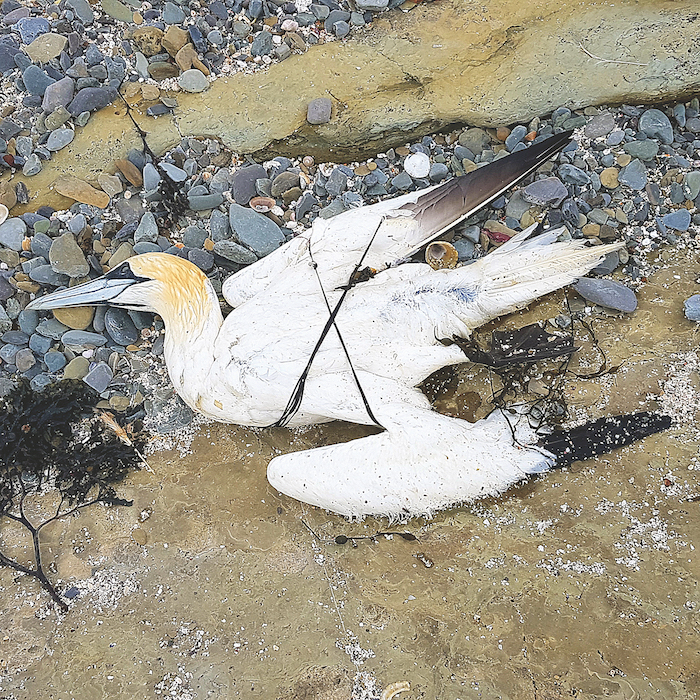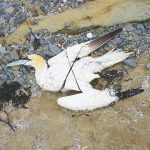

RSPB give advice on bird deaths
Over the past few weeks, large numbers of dead and dying seabirds have been seen in Orkney and across Scotland.
Although Shetland appears to be the most heavily affected, there are increasing numbers of reports from many of Scotland’s islands and coastlines. As reports increase, the number of species affected also appears to be increasing.
There have been reports of widespread deaths at great skua (bonxie) colonies in Shetland, Fair Isle, Orkney, the Western Isles, Handa, the Flannan Isles and St Kilda.
As well as widespread reports of sick and dead gannets at key colonies – most notably Noss in Shetland but also Troup Head in NE Scotland, Bass Rock in the Firth of Forth and elsewhere. Scotland has 60 per cent of the world’s population of breeding great skuas and 46 per cent of breeding gannets.
There are also reports of high mortality in sandwich and Arctic terns and elevated numbers of dead guillemots at a colony on the Mull of Galloway.
Many people living in areas affected are facing the impacts daily, as they walk past the corpses of seabirds lying on beaches.
Stewart Bain, RSPB Scotland’s communications & events officer in Orkney, said: “The number of dead birds along our coastlines in Orkney is heart-breaking to see and the range of affected species is causing much concern in the community. As we head into summer, more and more people will have first-hand experience of the devastation this virus is causing. There is a sense locally that people feel helpless, but there are things you can do.
“Safety remains paramount and you should avoid contact with any dead or dying birds, but please report them to the DEFRA helpline. This will help give a clearer picture of the situation and inform how it is dealt with. You can also try to be even more careful than normal about not disturbing nesting or birds.”
RSPB Scotland believes that the Scottish Government must act now to both respond to the developing situation with HPAI and to ensure measures are put in place to reduce the other threats faced by Scotland’s seabirds.
If you come across dead or sick birds, RSPB say you should not touch them. Instead, they advise you to report them as soon as possible to the DEFRA helpline on 03459 33 55 77.